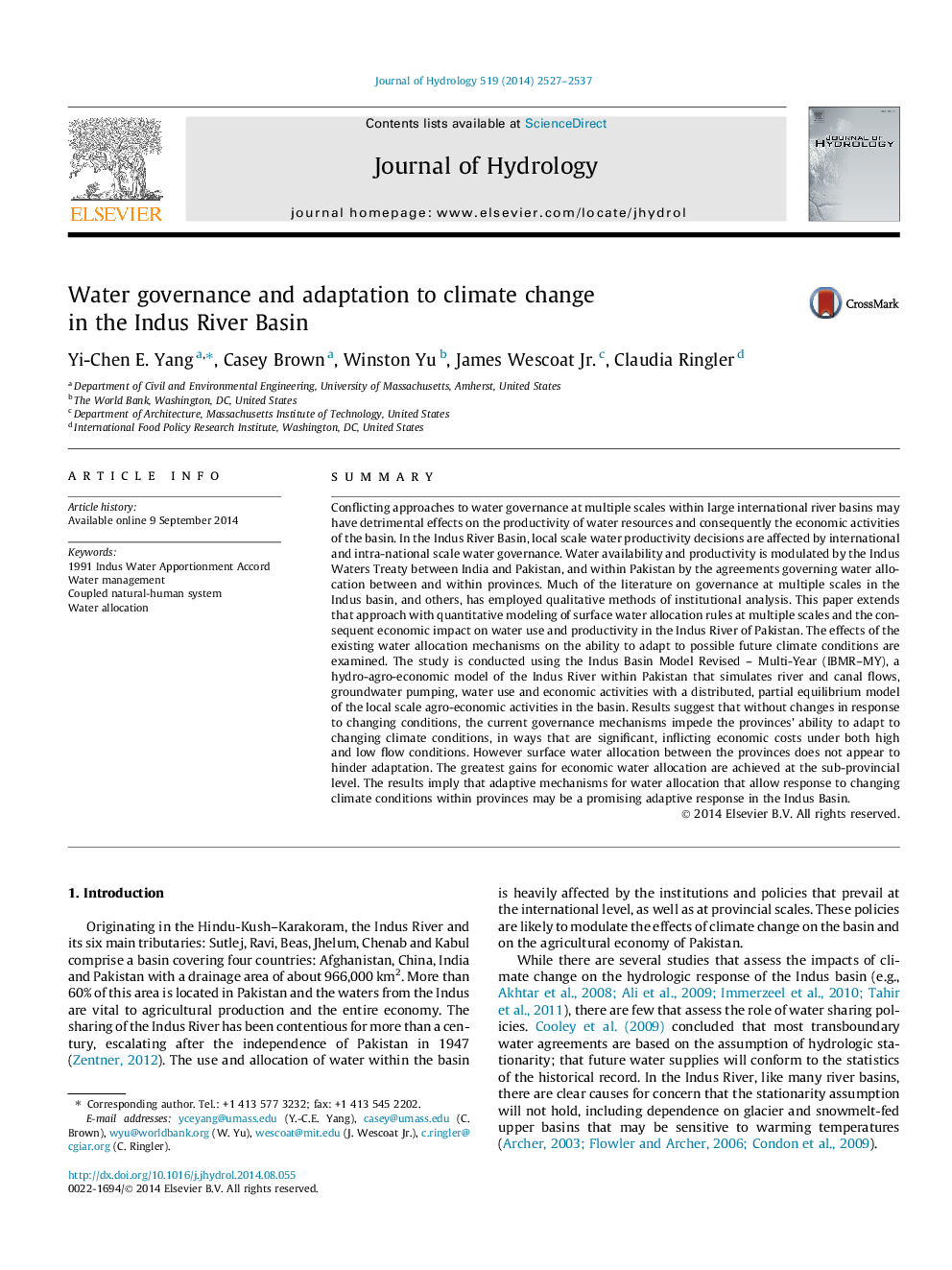| کد مقاله | کد نشریه | سال انتشار | مقاله انگلیسی | نسخه تمام متن |
|---|---|---|---|---|
| 6412626 | 1332901 | 2014 | 11 صفحه PDF | دانلود رایگان |
- This paper focus on the basin-wide, provincial and sub-provincial level water allocation in Pakistan.
- Relax the historical water allocation can mitigate the negative climate change effects.
- Both Punjab and Sindh will be benefited from the relaxation but not KPK and Baluchistan.
- Changing surface water allocation policy might potentially affect the informal groundwater market within provinces.
SummaryConflicting approaches to water governance at multiple scales within large international river basins may have detrimental effects on the productivity of water resources and consequently the economic activities of the basin. In the Indus River Basin, local scale water productivity decisions are affected by international and intra-national scale water governance. Water availability and productivity is modulated by the Indus Waters Treaty between India and Pakistan, and within Pakistan by the agreements governing water allocation between and within provinces. Much of the literature on governance at multiple scales in the Indus basin, and others, has employed qualitative methods of institutional analysis. This paper extends that approach with quantitative modeling of surface water allocation rules at multiple scales and the consequent economic impact on water use and productivity in the Indus River of Pakistan. The effects of the existing water allocation mechanisms on the ability to adapt to possible future climate conditions are examined. The study is conducted using the Indus Basin Model Revised - Multi-Year (IBMR-MY), a hydro-agro-economic model of the Indus River within Pakistan that simulates river and canal flows, groundwater pumping, water use and economic activities with a distributed, partial equilibrium model of the local scale agro-economic activities in the basin. Results suggest that without changes in response to changing conditions, the current governance mechanisms impede the provinces' ability to adapt to changing climate conditions, in ways that are significant, inflicting economic costs under both high and low flow conditions. However surface water allocation between the provinces does not appear to hinder adaptation. The greatest gains for economic water allocation are achieved at the sub-provincial level. The results imply that adaptive mechanisms for water allocation that allow response to changing climate conditions within provinces may be a promising adaptive response in the Indus Basin.
Journal: Journal of Hydrology - Volume 519, Part C, 27 November 2014, Pages 2527-2537
